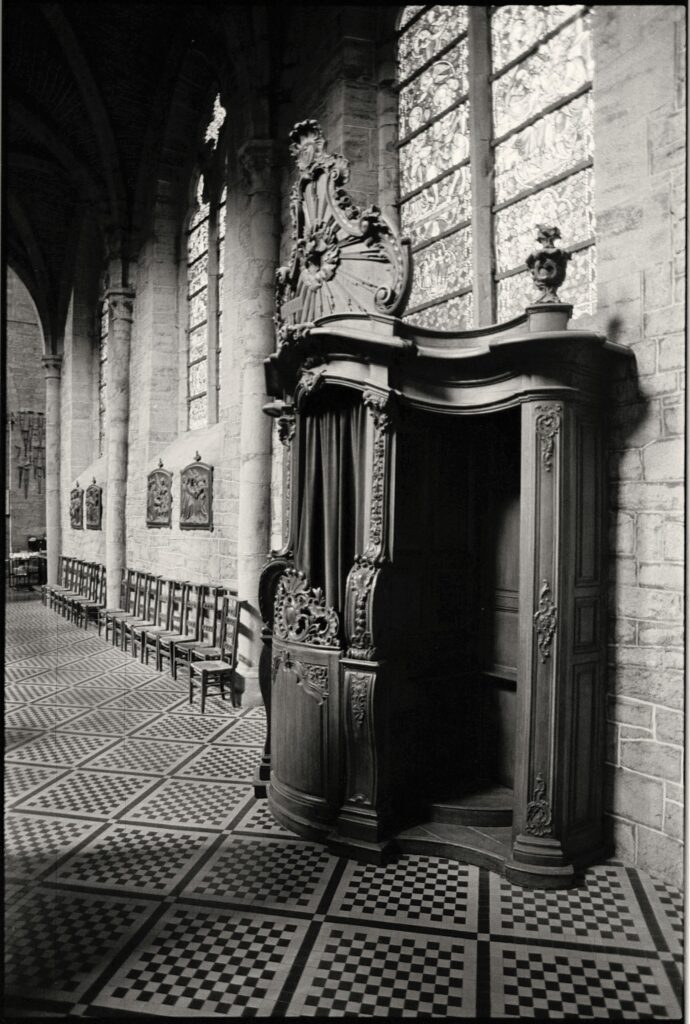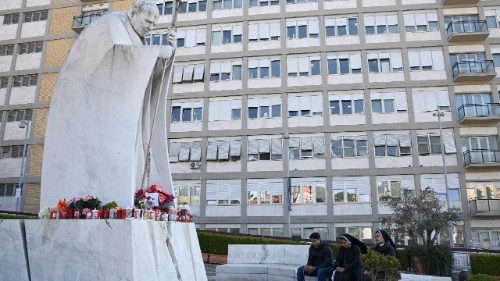Confession: returning to the arms of the Father, receiving forgiveness and not living, getting used to our sin
Educate in faith: Confession

The series is dedicated to “educating in the faith” on the topic of the sacraments as a means to educate our children. This week: The Confession.
Following the path of the sacraments with our children, after baptism, we will reach the sublime moment of the first confession.
The first confession, and from there all the others, is a precious opportunity to teach and educate our children about forgiveness, mercy, and the love of God.
How important it is for our children to see that we ask for forgiveness! They have to see us do it, without fear of exaggerating, daily. What father doesn’t have the feeling that he has made some mistake every day?! In my experience, perfect parents are those who make between five and ten mistakes a day. Less than five is impossible.
Our children should see and hear us ask for forgiveness very often. As many times as we screw up. And naturally, they must see that we are going to ask our Father for forgiveness.
Otherwise, how can they understand mercy? And if they don’t understand mercy, what idea are they going to have of God? If confession is not a frequent practice in our lives, it is very easy for them to stop “believing in faith” and make religion to suit themselves. The Jews have an adage that says: “Commit the same sin three times, and you will end up thinking it is lawful.”
Probably the reason why many people stop confessing is that they have lost awareness of sin. They believe that only those behaviors that appear in the penal code are sins: killing, stealing, swindling, etc. What “bad guys” do, ordinary people don’t go around harming others, and if we don’t harm we don’t do anything bad.
They have forgotten that God is their Father. If we lose sight of the fact that we are children of God, it will be very difficult for us to understand Him, but think for a moment about what things bother or offend a father (or mother), you will see that it is not necessary to commit crimes to do harm:
- Imagine if one of his children didn’t love you. Nothing at all. Think about how you would feel if one of your children were alive, as if you didn’t exist. The truth is that I don’t even want to think about it, it must be the most painful thing in the world.
- Think about when your children fight – it doesn’t matter how old they are. You probably know an adult who doesn’t talk to one of his siblings. How do you think your parents feel? It hurts us parents a lot to see that our children don’t love each other, don’t respect each other and walk away. Not to mention when they hurt each other, that’s horrible.
- What would happen if you found out that one of your children passes by your house every day, perhaps several times, but never, ever spends a second to see you, even if only to say: “I’m in a hurry, a kiss and bye bye”. I’m sure he would feel very hurt if you knew about this lack of affection.
- Can you imagine that one of your children was going through a difficult, serious situation, and that their siblings, being able to do so, did not help them? How painful to see that brothers do not help each other, and that they ignore the needs of their more disadvantaged brothers!
- I have four children, and I don’t even want to imagine that one day I will see someone looking at them lasciviously. Now they are little, and it would be absurd, but even if they are twenty-seven years old. If someone looked at any of my children with desire, but devoid of any kind of affection, affection, a look, simply lascivious, it would hurt (and make me angry) deeply.
- And doesn’t it hurt us to see our children when they don’t love themselves? Lack of self-esteem is the most frequent concern of parents. We love that they come to us so we can tell them: “You are the most wonderful thing in the world, you have many virtues, and the fact that you have weaknesses and defects does not diminish your value one bit.”
- Imagine that you prepare dinner for your children every Sunday. Imagine that preparing that dinner costs you the same life (in the case of Jesus it was literally like that) and after all, your children do not come. Wouldn’t it hurt a lot?
Looking at God as our father, it does not help us love him, or even understand him (even if only a little).
There are people who think that the Catholic faith is blaming because it brings light to our faults. In reality, and if you don’t believe me, ask any psychoanalyst who, after all, makes a living from it, the feeling of guilt is inherent to human beings. As soon as we have the use of reason, we begin to be aware that there are things we should not do (and yet we do them) and things we should do (and we do not do them).
But the feeling of guilt, which I insist, we all have, is useless, it is even deeply harmful if it has no solution and the only definitive solution is forgiveness.
That’s what confession is for, to return to the arms of the Father, receive forgiveness and not get used to our sin. I am convinced that moving away from the confessional is the first step in moving away from the faith.
Related

Pope Francis spent a peaceful night
Exaudi Staff
02 March, 2025
1 min

Pope Francis has had a peaceful night
Exaudi Staff
25 February, 2025
1 min

What should the boyfriend or girlfriend I should find be like?
Patricia Jiménez Ramírez
24 February, 2025
4 min

The Pope spent a quiet night at Gemelli
Exaudi Staff
23 February, 2025
1 min
 (EN)
(EN)
 (ES)
(ES)
 (IT)
(IT)

